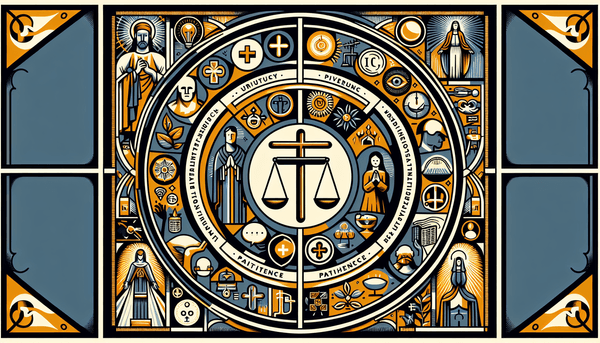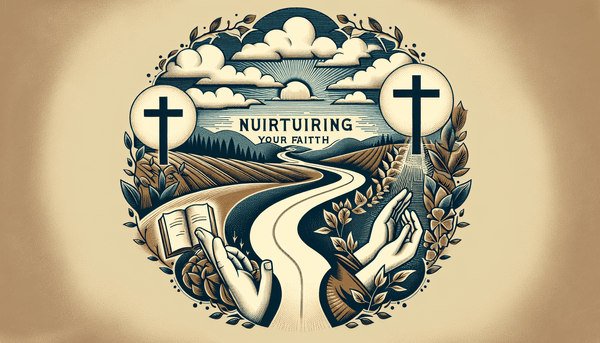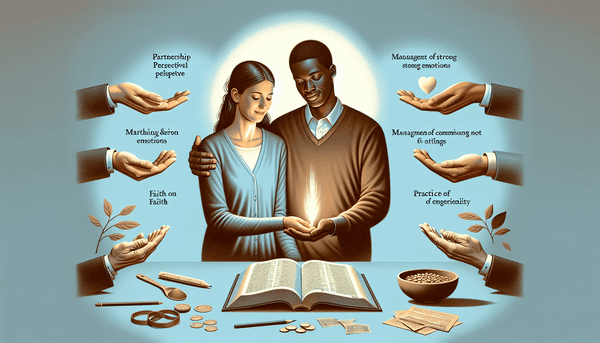The One True Church
When discussing the 'one true church,' it's crucial to consider the scriptural basis for Christian unity. The Bible speaks of believers forming one body, united by one Spirit, as exemplified in 1 Corinthians 12:12-13 and Ephesians 4:4-6. These passages highlight that, although individual believers come from diverse backgrounds and denominations, they are all baptized into one body, sharing one hope, one Lord, one faith, and one baptism. The unity is further affirmed in verses such as John 17:21-23, where Jesus prays for all believers to be one, just as He is one with the Father. The concept of the 'one true church' is therefore seen as a spiritual communion that transcends denominational lines, unified by the presence of one God who is 'over all and through all and in all'.
The Value of a Virtuous Woman
A woman of noble character is highly esteemed in the Christian tradition, as described in Proverbs 31:10-31. This passage paints a picture of a virtuous woman whose worth 'is far above rubies.' Her attributes include strength, wisdom, and kindness, and her actions benefit her household and community. The Bible emphasizes the importance of such virtues, suggesting that the true beauty of a woman lies not in outward adornments but in her godly character, as reflected in 1 Peter 3:3-4. The impact of a virtuous woman is profound, with scriptures like Proverbs 12:4 and Proverbs 19:14 acknowledging her as a crown to her husband and a gift from the Lord. In the New Testament, Titus 2:3-5 encourages older women to teach what is good, so that younger women may learn to embody these noble qualities.
Long-Suffering: A Virtue of Patience
The Christian virtue of long-suffering, or patience in enduring hardship, is a testament to one's faith and character. It's a quality that allows individuals to face adversity without complaint, reflecting the fruit of the Spirit as outlined in Galatians 5:22-23. This resilience in the face of trials is not just about stoicism, but also about finding joy, gratitude, and peace through biblical wisdom, as further explored in our related discussion. Long-suffering is exemplified by many Biblical figures, including Job and the Apostle Paul, who endured great trials yet remained steadfast in their faith. The New Testament encourages believers to be strengthened with all power according to God's glorious might for all endurance and patience, as seen in Colossians 1:11-12. Moreover, 2 Peter 3:9 describes the Lord's patience as salvation, reminding us that God's long-suffering is intended to lead us to repentance. Romans 5:3-4 also teaches that suffering produces perseverance, which in turn fosters character and hope.
Faith and Works: Complementary Elements of Christian Life
The interplay between faith and works within Christianity is a subject of significant theological discussion. Ephesians 2:8-9 clearly states that salvation is a gift of grace through faith, not a result of works. However, the relationship between faith and works is not one of opposition but of completion. The epistle of James, specifically James 2:14-26, articulates that faith without works is dead, urging believers to demonstrate their faith through their deeds. This concept is further supported by Matthew 5:16, where Jesus encourages believers to let their light shine before others so that they may see their good works and glorify the Father in heaven. Paul's letters also address this balance, as seen in Galatians 2:16 and Romans 3:28, both affirming that justification is by faith, yet a faith that is alive is naturally accompanied by works.
Conclusion
In conclusion, the exploration of these biblical themes reveals a rich tapestry of belief and practice within the Christian faith. The 'one true church' is not confined to a particular denomination but encompasses all who are united in Christ. The virtuous woman stands as a beacon of noble character, long-suffering showcases the resilience of the human spirit in faith, and the harmonious relationship between faith and works underscores the dynamic nature of Christian living. As we reflect on these concepts, let us embrace the diversity within unity that is so central to the Christian tradition and seek to embody these principles in our daily lives, cultivating a heart of gratitude and faith as we navigate life's busyness.
FAQ
Q: Is there a verse that suggests there's only one true church?
A: Yes, the Bible suggests unity among believers as one body in Christ, particularly in Ephesians 4:4-6, which speaks of one body and one Spirit.
Q: What is the one true church?
A: The one true church is often interpreted as the spiritual body of all believers in Jesus Christ, transcending denominational boundaries, as highlighted in 1 Corinthians 12:12-13.
Q: What is long-suffering?
A: Long-suffering is the quality of being patient and enduring hardship or adversity without complaint, exemplified by the fruit of the Spirit in Galatians 5:22-23.
Q: Does the Bible say something about faith over works?
A: The Bible discusses the relationship between faith and works, emphasizing that salvation is by grace through faith, not works, in Ephesians 2:8-9, and that faith without works is dead, as stated in James 2:14-26.






